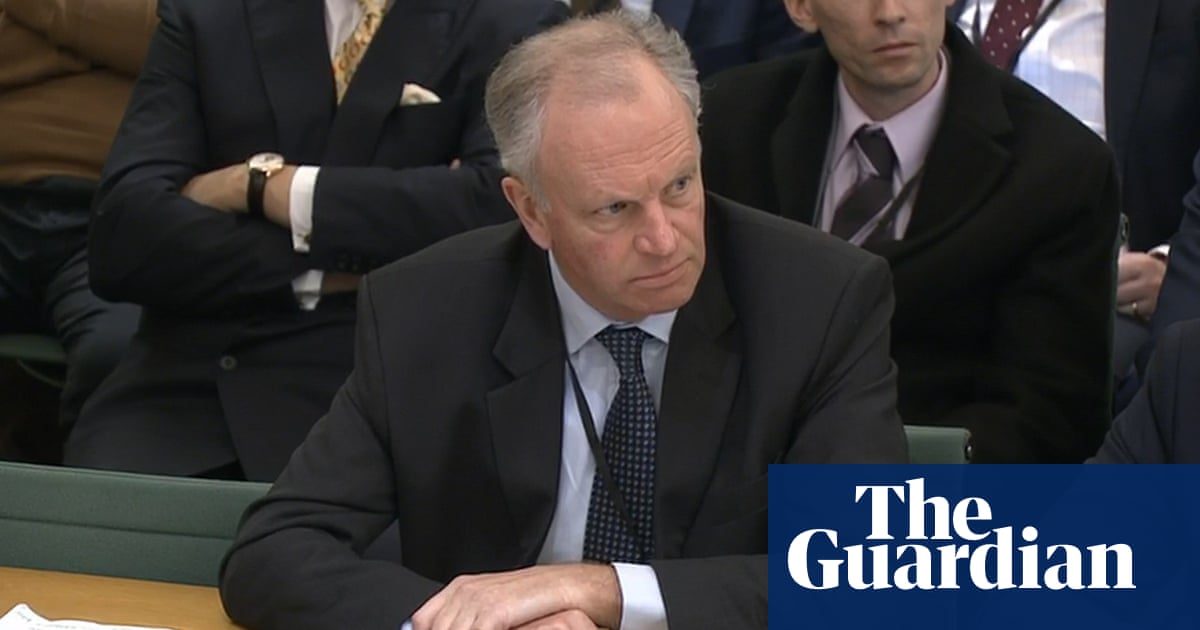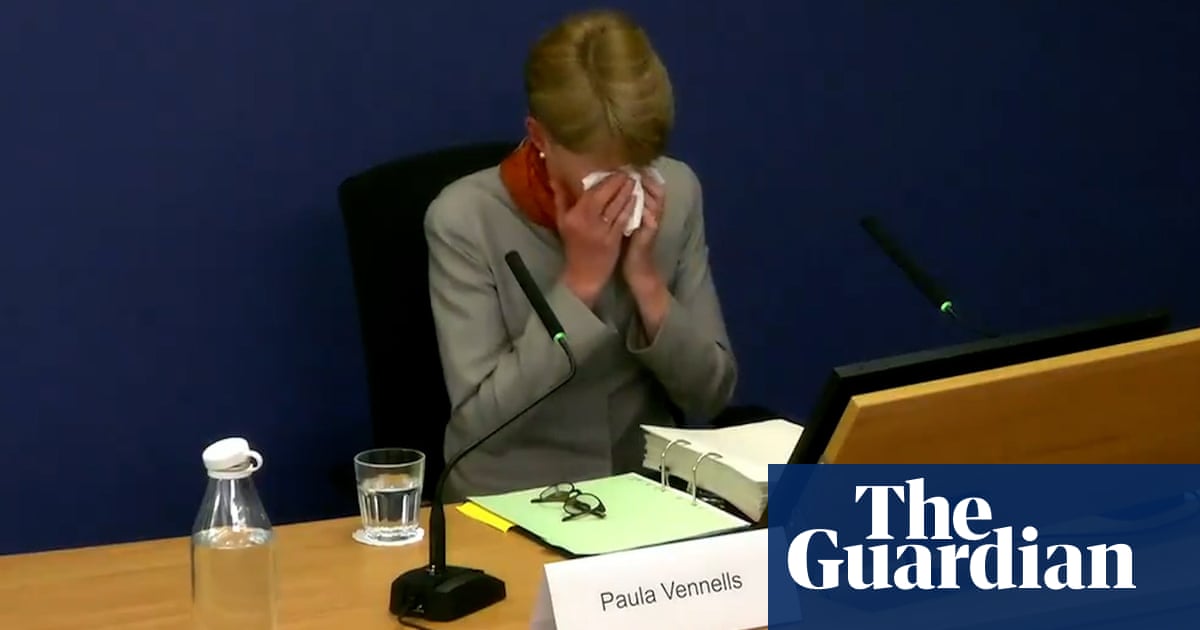
This week is set to be the most keenly watched of the final phase of the long-running public inquiry into the Horizon IT scandal and the state and culture of the Post Office.
Nick Read, the outgoing chief executive of the Post Office, will give three days of testimony from Wednesday amounting to a grilling by counsel for the inquiry of about 16 hours.
Read, who was brought in to replace Paula Vennells in 2019 and “right the wrongs of the past”, announced in the summer that he was stepping back from running the company to focus on preparing and proving that “nothing like this could happen again”.
The executive, who has given himself 88 days to prepare for his appearance, has been on the receiving end of heavy criticism from witnesses and become embroiled in a reputational crisis of his own.
Here are some of the key issues the judge-led inquiry is likely to ask him to explain.
Read’s ‘obsession’ with pay and bonuses
Henry Staunton, the former chair of the Post Office, twice asked the government for Read’s pay to be doubled, and has told the inquiry that Read had threatened to leave over the issue.
Staunton, who was sacked in January by the then business secretary, Kemi Badenoch, said that he put forward the requests only because he knew that the government would refuse.
“It was astonishing,” Staunton told the inquiry last month. “It was taking up a disproportionate amount of my time. If I was a subpostmaster I would have been horrified – with my remuneration going up 1% or 2%, costs going up more, many losing money – to see discussion of moving [Read’s] pay to £1.1m just for hitting target, let alone the amount he would have got for good performance.”
Jane Davies, the former people officer at the Post Office, bluntly called it an “obsession”, while Amanda Burton, the chair of the Post Office’s remuneration committee, said she was surprised at how often the topic of Read wanting a pay increase was raised.
The ‘untouchables’
The inquiry has heard a lot about “untouchables” within the Post Office.
The phrase, which has been attributed to Read, refers to a group of the organisation’s investigators involved in the pursuit of post office operators who would never face disciplinary action over the Horizon IT scandal.
Saf Ismail, one of two subpostmasters who sit on the board of the Post Office, has also referred to a “red” list of 23 other employees deemed high risk given their involvement in the scandal in one way or another, none of whom have even been suspended.
The former chair Staunton went as far as warning of another Horizon-style scandal if the “untouchables” were not removed by the time the new IT system, called NBIT, was finally rolled out.
Millions of pounds remain in dispute between post office operators and what is on their records and what is in the Post Office main accounts.
“They are people that were involved in prosecuting postmasters previously and are still in their roles,” Staunton told the inquiry. “I am very afraid. [They] would be involved in any future investigations … and that seems utterly wrong.”
Cultural change at the Post Office
A key theme of the final phase of the inquiry is to examine the cultural change at the Post Office, in the years since the 2019 high court victory led by Alan Bates uncovered the appalling treatment of post office operators and the behaviour of executives.
Outside the inquiry Read has been embroiled in a reputational crisis after allegations of bullying, and questions about the departure of Alisdair Cameron, who officially left the company in June after a year of sick leave.
Cameron told the inquiry that Read prefers to work with teams of “younger, deferential males” and “very few senior and independent-minded colleagues, especially female” have thrived at the Post Office.
The inquiry has also heard that it appears that little has changed in how Post Office executives view post office operators.
Staunton gave testimony that Ben Foat, the general counsel at the Post Office, told him that the organisation doesn’t owe the same duty of care to operators as its own employees.
Ismail and a fellow subpostmaster non-executive director member of the Post Office board have told the inquiry that there is an attitude that post office operators are “on the take” and assumed to be guilty until proven innocent.
Both have found themselves the subsequent subjects of investigations by the Post Office since joining the board in 2021.
Ismail told the inquiry that after their appointment to the board, a measure designed to better relations with operators and improve the running of the organisation, executives at the Post Office weren’t welcoming and “made it difficult”.
He said he was told that Read was not happy with post office operators being on the board and “wanted that to be reversed”. They were also blocked or excluded from attending certain meetings, such as those around bonuses and pay.
A survey conducted on behalf of the inquiry also found that post office operators from a minority ethnic background were more likely to have been threatened with suspension than those from a white background.
The spat with Fujitsu over the use of Horizon IT data in cases against post office operators
The inquiry heard that earlier this year, an email was sent by John Bartlett, the head of investigations at the Post Office, to Fujitsu asking for a witness statement relating to Horizon data for use in a criminal case against a post office operator in which the Post Office was the “potential victim”.
The issue was rapidly escalated to Paul Patterson, the chief executive of Fujitsu Europe, who wrote directly to Read.
He said the request was “entirely inappropriate” given judicial findings against the Post Office and Horizon data, adding that it was clear the “Post Office continues to have significant cultural problems”.
Read did not take up the offer of a meeting with Patterson to discuss the matter “CEO to CEO”.
The replacement of the Horizon IT system
The supposed replacement for Horizon – the New Branch IT system (NBIT) – continues to be beset by delays and bugs and has seen its projected cost balloon from £180m to £1.1bn.
The Post Office originally said that NBIT would be deployed by March 2025.
However, Chris Brocklesby, who left his role as chief transformation officer last month, told the inquiry that upon his arrival in 2023 there was “no credible plan” for that ever to be met.
NBIT is being tested in only a handful of branches and the timeline is for it to be ready to be deployed by mid-2026, with all branches online by the end of 2028.
The Post Office has already been forced to extend its contract with Fujitsu twice, at a total cost of £95.6m, but it comes up for renewal again on 1 April 2025.
The inquiry has seen documents that show the Post Office is going to be forced to extend the contract in a further five-year deal, reportedly at a cost of £180m.












